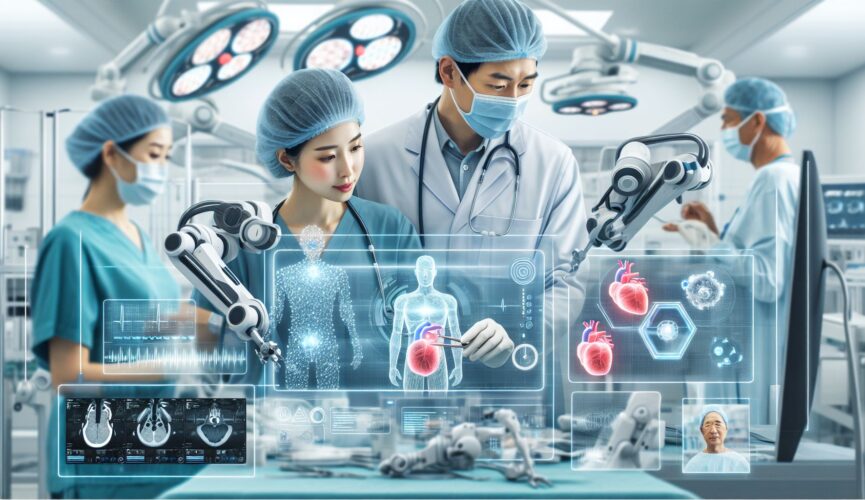Technology has undeniably transformed every aspect of our lives, with medicine being no exception. From diagnosis and treatment to patient care and management, the integration of technology has revolutionized the healthcare industry. In this blog post, we explore the profound impact of technology on medicine and how it continues to shape the future.
The Diagnosis Revolution
In the past, diagnosing illnesses and diseases was a time-consuming and often inaccurate process. However, with the advent of advanced technologies, diagnosis has become more efficient, accurate, and faster than ever before. Cutting-edge imaging techniques like Magnetic Resonance Imaging (MRI), Computed Tomography (CT), and Ultrasound have revolutionized medical imaging, allowing doctors to visualize the internal structures of the body non-invasively. These technologies enable early detection of diseases such as cancer, enabling timely interventions and improving patient outcomes.
Precision Treatment and Personalized Medicine
Thanks to technological advancements, the field of medicine has transitioned from a one-size-fits-all approach to personalized treatment plans. Genomics, for example, has played a pivotal role in personalized medicine. By analyzing an individual’s genetic makeup, doctors can determine the most effective medications and treatment strategies tailored to that person’s unique genetic profile. Pharmacogenomics, a subdiscipline of genomics, helps predict an individual’s response to specific medications, reducing adverse reactions and optimizing treatment outcomes.
Enhancing Patient Care and Management
The integration of technology in healthcare has significantly improved patient care and management. Electronic Health Records (EHRs) streamline and centralize patient information, making it easily accessible across healthcare providers. This facilitates better coordination of care, reduces medical errors, and enhances patient safety. Additionally, telemedicine has emerged as a critical technology in providing remote healthcare services, enabling patients to consult with physicians from the comfort of their homes. This technology has proved especially useful during the COVID-19 pandemic, ensuring continuity of care while minimizing the risk of viral transmission.
The Future of Medicine
As technology continues to advance, the future of medicine holds even more possibilities. Artificial Intelligence (AI) is poised to play a pivotal role in healthcare. AI algorithms can mine vast amounts of medical data to identify patterns and predict outcomes, significantly improving diagnosis and treatment planning. Robotics and automation are also set to revolutionize surgery, making procedures less invasive and enabling faster recovery times. Furthermore, wearable devices and mobile apps that monitor vital signs and collect health data in real-time will empower individuals to take charge of their health and enable proactive interventions.
In conclusion, the integration of technology in medicine has brought transformative changes to the healthcare industry. From expediting diagnoses to enabling personalized treatment plans and enhancing patient care, the impact is undeniable. As we stand on the brink of a new era, it is crucial to embrace and leverage technology’s potential to shape a healthier future for all.
